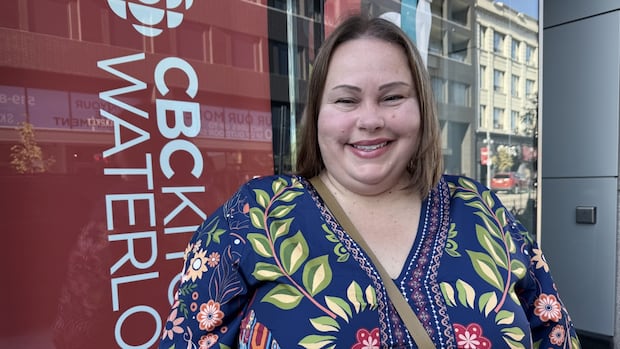Waterloo region groups say they’re concerned about proposed federal funding cuts to Women and Gender Equality Canada (WAGE) and how it will impact their ability to help victims of gender-based violence.
The proposed cuts to WAGE could result in a nearly 80 per cent cut to the budget from 2027 to 2028, if passed.
Sara Casselman, executive director of the Sexual Assault Support Centre of Waterloo Region, says this would directly impact the organization and the work they do in Waterloo region.
“Waterloo region was the least safe major urban centre in Canada for women based on police reports of sexual assault, criminal harassment and domestic violence. Our community was labelled the least safe,” she said, referencing a 2019 report from the Canadian Centre for Policy Alternatives that ranked 26 metro areas across Canada.
“In 2023, our regional government and our city government declared that an epidemic in our community when it came to gender based violence. Recent reports have put Waterloo region as the third highest level of trafficking in Canada. And so we’re not talking about something abstract.”
Casselman co-chairs The Leadership Table, a coalition of 12 local organizations, which signed a letter sent to Prime Minister Mark Carney on Oct. 1 which warns about the consequences of making cuts.
“This scale of reduction would destabilize services nationwide and undermine the progress of community-driven strategies,” the letter says. “The proposed cuts to WAGE jeopardize not only federal commitments to gender equality but also the safety, dignity, and futures of survivors in communities across Canada.”
CBC News has reached out to the prime minister’s office for comment on the letter. This story will be updated when the office sends a statement.
As of Tuesday morning, Casselman says The Leadership Table has not heard back from the prime minister’s office either.
She says for example, WAGE funding has previously allowed them to update the technology at their centre and move data to cloud-based storage. That has helped overcome serious challenges with providing essential services during the pandemic.
“That’s just a really small snapshot, but there’s so much else that they’ve done in terms of transformative public education, engaging men and boys in the work and violence against women and girls,” she said.
“They’ve invested in our human trafficking program in the past. They’ve invested in overall capacity building at our centre, which allowed us to use a $50,000 infusion to make $200,000. So there’s so many different ways, and that’s just our centre alone.”
Women’s Crisis Services of Waterloo Region
Jennifer Hutton is the chief executive officer of Women’s Crisis Services of Waterloo Region and co-chair of The Leadership Table. She says cuts to WAGE will have detrimental effects on her organization, too.
“We need the funding to continue this work,” she said.
“We’re looking at projects that are very prevention focused … that are well supported through research and have very strong outcomes attached and they’re very centred on equity owed groups. So the impact of this funding is huge in the overall scheme of working to eradicate gender based violence.”
She says everyone is impacted by gender based violence.
“Most people that I’ve talked to, they may say to me initially, ‘I’m lucky I’ve never been impacted by gender-based violence,'” Hutton said.
“And as that discussion continues, I often find people and say to me, ‘You know what? Now that I think about it, my sister was in an abusive relationship or I was really worried about one family down the street because there seemed to be a high amount of conflict and I was worried about the impact on their child,'” she added.
“So more times than not, I think people are impacted in one way or another.”
